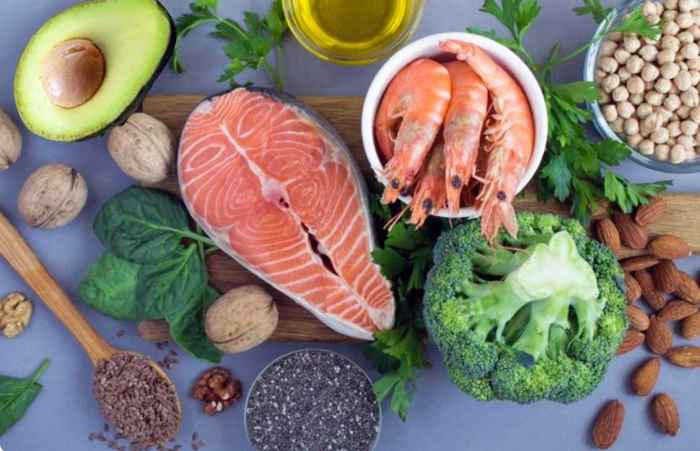Essential fatty acids – critical to maintain a healthy body
Our bodies are made up of trillions of cells that make up all the different types of tissue in our bodies. Fats (phospholipid membranes) make the exterior membranes of cells.
As a result, it is imperative that we ingest sufficient quantities of essential fatty acids as they are crucial to the proper functioning of our cells.
In light of the fact that our bodies are not able to manufacture EFA’s from scratch.
Studies show that many people are deficient in these powerful fats as the result of the modern diet, which is full of processed foods and trans-fats and lacking in the good, essential fats.
Fatigue, hair loss, dry skin, poor growth, loss of visual acuity, and an increased risk of disease are all symptoms of EFA deficiency.
A diet that includes fish, seeds, and nuts as well as omega-3 supplementation can help to lessen the effects of these symptoms.
There are 2 main types of EFA’s – omega 3’s and omega 6’s. Results from recent research show that omega-3 fatty acids are particularly important for healthy brain function.
DHA (docosahexaenoic acid), an omega-3 fatty acid, has been found to be concentrated in the brain and retina cells and is essential for infant brain development and retinal function.
Both DHA and EPA (eicosapentaenoic acid), found in fish such as sardines, mackerel, trout, herring, tuna, and salmon, are necessary for enhancing learning ability, mental development, and visual acuity in people of all ages.
Alpha-linolenic acid (ALA), another omega-3 fatty acid, is abundant in flaxseed and flaxseed oil. Research shows that ALA also supports learning and memory.
Omega-6 fatty acids, DGLA and GLA, also play an important role in healthy brain function. Valuable quantities of GLA are found in borage oil and evening primrose oil.
Other sources of omega-6 fatty acids are poultry, eggs, cereals, whole-grain pieces of bread, baked goods, nuts, and seeds.
In fact, owing to the fact that omega-6 is in so many of the foods we eat, an imbalance often occurs between omega-3 and omega-6.
Therefore, it is usually only necessary to supplement with fish oil, a good source of omega-3 fatty acids.
It has been found that a deficiency in EFA’s and trace minerals during the prenatal period and in early childhood may be responsible for the development of ADD/ADHD later in life.
In a study conducted on young boys with learning disorders, researchers found that a greater number of behavioral problems, temper tantrums, and sleep difficulties occurred in those participants with lower concentrations of omega-3.
Therefore, many health practitioners recommend at least 1 teaspoon a day of a high-quality omega-3 supplement for children.
It has been recommended that patients with heart problems take at least 3 times the minimum recommended daily amount of combined DHA and EPA in order to maintain health, i.e. 900mg x 3 = 4600mg/day.
A few companies are producing great-tasting fish oil supplementation; therefore, looking after your health need not be an ordeal. I wish you good health!
DISCLAIMER: The Food and Drug Administration (FDA) has not investigated these claims. This material is not intended to be used to diagnose, treat, or cure any illness. Consult your primary care physician before beginning any weight loss, fitness, or supplements program.
